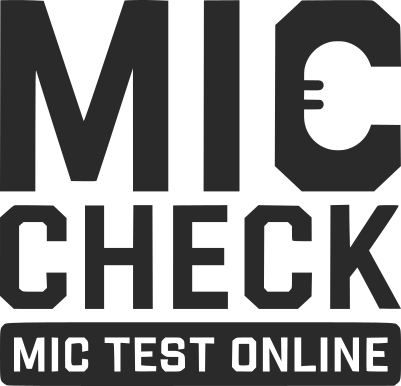Battery Health Analyzer
Enter your battery report data from powercfg /batteryreport
Battery Information
Ultimate Guide to Laptop Battery Testing Online
Table of Contents
- Introduction
- Key Takeaways
- Understanding Battery Testing
- Methods of Battery Testing
- Online Battery Testing Tools
- Professional Battery Testing
- Common Battery Issues
- Battery Maintenance Tips
- FAQs
Introduction
In today’s digital age, understanding battery testing has become crucial for anyone who relies on electronic devices. Whether you’re using a laptop, smartphone, or electric vehicle, knowing how to test your battery’s health can save you from unexpected shutdowns and extend your device’s lifespan. This comprehensive guide will walk you through everything you need to know about battery testing, from basic checks to advanced diagnostics.
Quick Summary Box
- Learn how to test any device battery
- Understand battery health indicators
- Discover free built-in testing tools
- Master professional testing methods
- Identify when to replace your battery
Understanding Battery Testing
Battery testing is more than just checking how much charge is left. It’s about understanding your battery’s overall health, capacity, and performance. Modern batteries typically last between 2-4 years, but this can vary significantly based on usage patterns and maintenance.
Why Battery Testing Matters
- Prevents unexpected device failures
- Helps plan for battery replacement
- Optimizes device performance
- Saves money on unnecessary replacements
- Extends battery lifespan through proper maintenance
Methods of Battery Testing
1. Built-in Windows Battery Report
Windows offers a powerful built-in tool for battery testing. Here’s how to use it:
- Open Command Prompt as Administrator
- Type:
powercfg /batteryreport - Access the report at: C:\Windows\System32\battery-report.html
This report provides detailed information about:
- Battery capacity
- Cycle count
- Usage patterns
- Historical capacity changes
2. Online Battery Testing
Several online tools can help you test your battery’s health:
- Built-in OS diagnostics
- Manufacturer-specific tools
- Third-party battery monitoring apps
3. Professional Testing Methods
Professional battery testing involves:
- Load testing
- Capacity testing
- Voltage testing
- Internal resistance measurement
Online Battery Testing Tools
Modern devices offer various ways to test batteries online. Here are the most reliable methods:
- Operating System Tools
- Windows Battery Report
- macOS Battery Health
- Linux Battery Statistics
- Manufacturer Tools
- Dell Power Manager
- Lenovo Vantage
- HP Support Assistant
- Third-Party Applications
- BatteryInfoView
- BatteryCare
- CoconutBattery (Mac)
Professional Battery Testing
Professional testing provides the most accurate results and includes:
Capacity Testing
- Measures actual vs. designed capacity
- Determines battery health percentage
- Identifies capacity loss over time
Performance Testing
- Load testing under various conditions
- Temperature response testing
- Charging efficiency analysis
Common Battery Issues
Watch for these common signs of battery problems:
- Rapid Discharge
- Battery drains unusually quickly
- Sudden power drops
- Inconsistent battery level readings
- Charging Problems
- Slow charging
- Not charging to full capacity
- Overheating during charging
- Physical Signs
- Swelling or bulging
- Excessive heat during use
- Physical damage
Battery Maintenance Tips
Extend your battery’s life with these proven tips:
- Optimal Charging Habits
- Keep battery level between 20% and 80%
- Avoid frequent complete discharges
- Use original or certified chargers
- Temperature Management
- Avoid extreme temperatures
- Keep devices cool during charging
- Don’t leave devices in hot cars
- Regular Testing
- Monthly health checks
- Performance monitoring
- Capacity tracking
FAQs
Q: How often should I test my battery? A: Perform basic battery tests monthly and comprehensive tests every 3-4 months for optimal monitoring.
Q: What’s a good battery health percentage? A: A battery health above 80% is considered good. Below 60% might require replacement depending on your needs.
Q: Can I test my battery without special tools? A: Yes, Windows users can use the built-in battery report command (powercfg /batteryreport), while other operating systems have similar built-in tools.
Q: How accurate are online battery tests? A: Built-in system tools are generally accurate for basic health metrics, but professional testing provides more detailed and precise results.
Q: When should I replace my battery? A: Consider replacement when battery health drops below 60%, or when you experience significant performance issues like rapid discharge or charging problems.
Conclusion
Battery testing is essential for maintaining device performance and preventing unexpected failures. Whether you’re using built-in tools, online resources, or professional testing methods, regular battery health checks should be part of your device maintenance routine. Remember to monitor your battery’s health, follow proper charging practices, and address issues early to maximize your battery’s lifespan.
Ready to start testing your battery? Begin with the simple Windows battery report command (powercfg /batteryreport) and track your battery’s health over time. Share your experiences or questions in the comments below!
